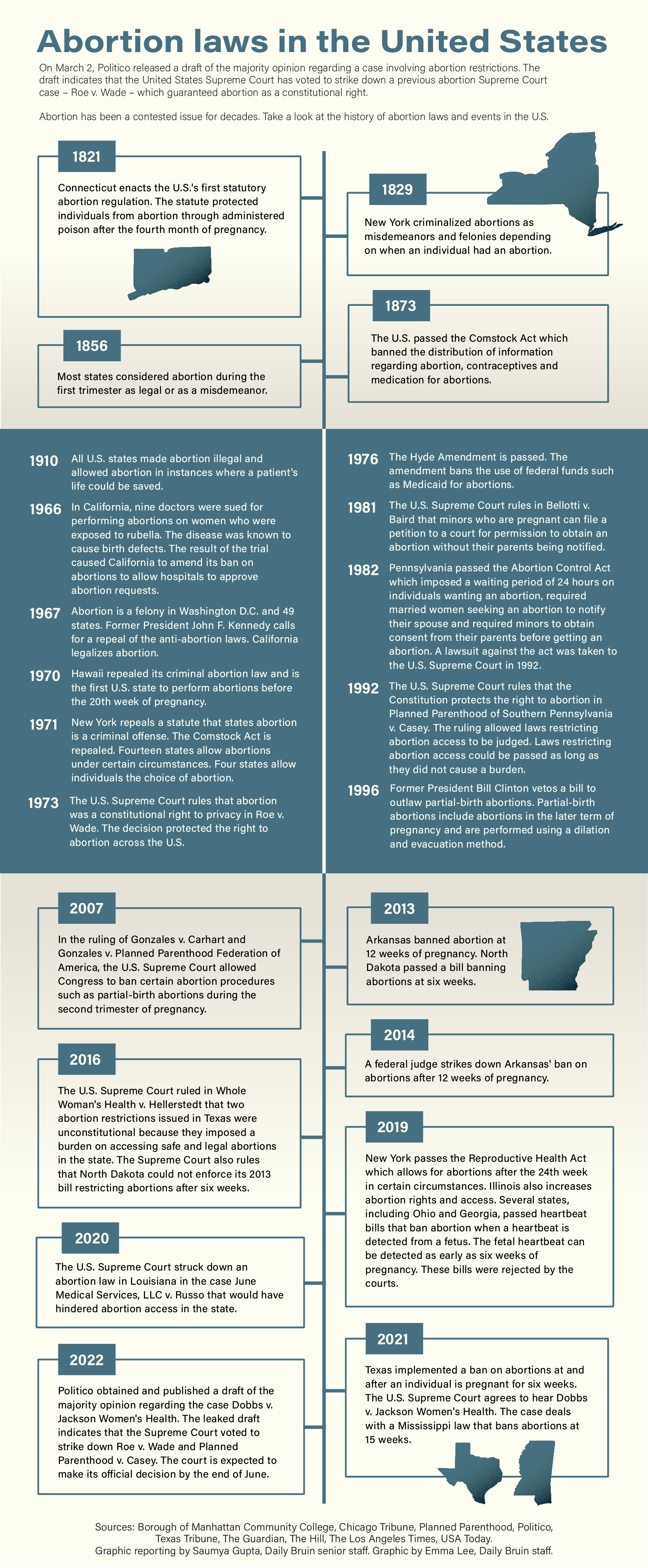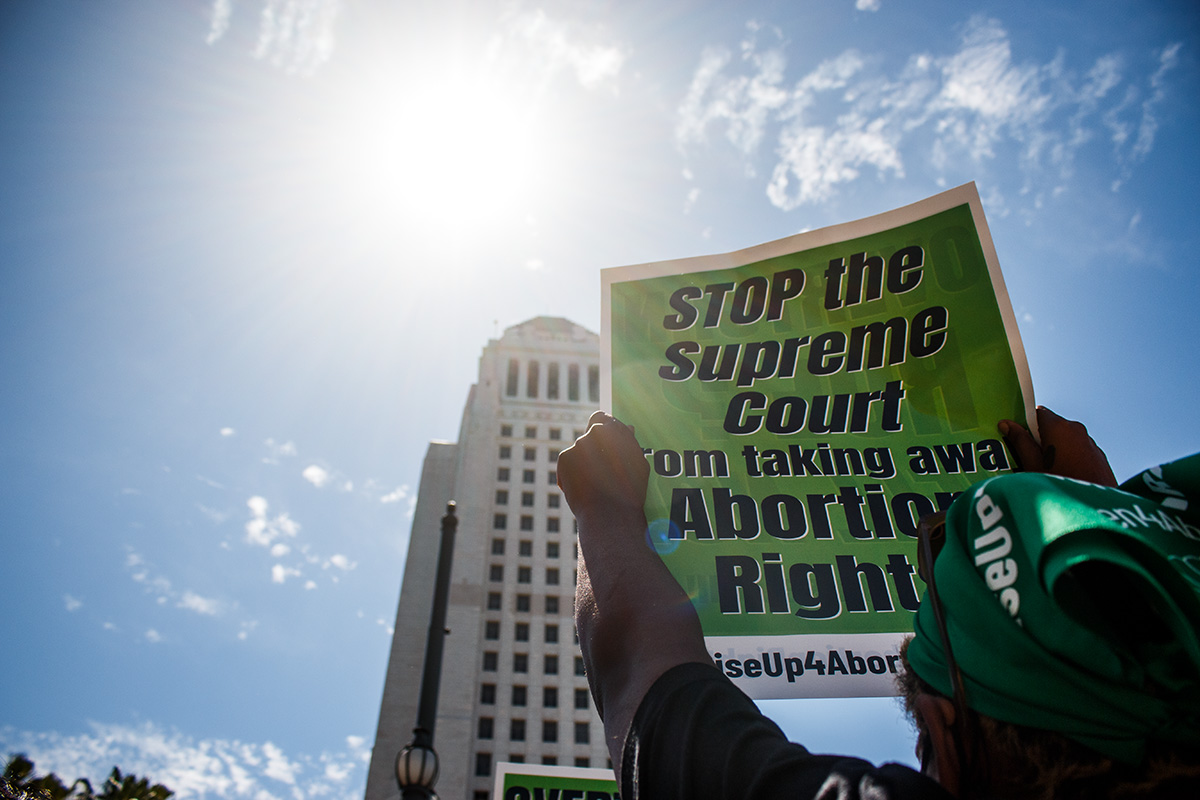Aftermath of Roe v. Wade: UCLA community uncertain about future of reproductive care

A computer user searching for an abortion clinic is pictured. (Megan Cai/Assistant Photo editor)
By Sarah Nachimson
April 12, 2023 12:14 a.m.
UCLA community members in anti-abortion states said current and potential abortion restrictions nearly a year after the overturning of Roe v. Wade could change their approaches and capacities in offering reproductive health care.
In June, the Supreme Court decided the case of Dobbs v. Jackson Women’s Health Organization, ruling that the Constitution does not guarantee the right to abortion, which overturned Roe v. Wade. The Court’s decision has changed the landscape for people seeking abortions, particularly in states such as Arizona and Georgia that have since implemented restrictions on abortion.
Mothers in states with abortion bans are three times more likely to die during pregnancy, childbirth or soon after giving birth, according to a January report from the Gender Equity Policy Institute, an organization researching the gender impacts of policies.
Dr. DeShawn Taylor, a 2001 David Geffen School of Medicine alumnus, founded a family planning clinic in Arizona in 2013. Prior to the overturn of Roe v. Wade, Taylor said her clinic provided the majority of second-trimester and later abortions in Arizona.
However, in September, Arizona lawmakers banned abortions after 15 weeks of pregnancy, and some in the state are seeking to reinstate an 1864 Arizona law that outlawed abortions after two weeks.
Following the 15-week ban, Taylor said her clinic now has to treat more patients with more urgency, adding that, as an independent abortion provider, she finds her clinic lacks resources to accelerate patient treatment.
“The opportunity to raise funds to keep the doors open has become a bit more daunting,” she said. “Also, you can’t hire people. You can’t really tell them exactly what they’re going to be doing in the next month or two.”
Patients in states with increasing restrictions on abortion have long experienced barriers to abortion access, even prior to the Dobbs decision, said Dr. Kavita Vinekar, a former UCLA assistant professor of obstetrics and gynecology who is currently an OB-GYN in Pennsylvania.
Vinekar said she is concerned that the emerging restrictions will lower the quality of care OB-GYNs can deliver. Vinekar said health care providers could be hesitant to work in anti-abortion states, especially those with “health care deserts” – regions where it is already difficult to access health care services – despite those locations already having shortages of care. About 2.2 million American women currently live in maternity care deserts, according to a report from March of Dimes, a nonprofit organization that works to improve the health of mothers and babies.
“We’re already facing extreme restrictions to accessing abortion,” Vinekar said. “What Dobbs did was … really just amplify that nationally and create a lot more fear and confusion among physicians and health care providers and patients,” she said.
Dr. Jessica Spencer, a former OB-GYN resident at the David Geffen School of Medicine, works as a reproductive endocrinology and infertility fellow at Emory University in Atlanta, Georgia. She said she is concerned about new restrictions on embryos affecting her care for patients experiencing infertility or other reproductive issues.
However, Georgia’s current legislation, known as a “heartbeat bill,” bans abortions after the detection of embryonic cardiac activity, preventing abortions after six weeks of pregnancy. The Georgia law, originally passed in 2019, came into effect following the overturning of Roe v. Wade in July 2022 and has withstood current challenges in court, according to NPR. The Georgia Supreme Court is expected to rule on its legality within the next six months, according to Axios.
Spencer said that future laws could impact the decisions patients make with their reproductive care, adding that the laws may disproportionately affect low-income patients who cannot afford to travel to other states for reproductive health care.
“It’s alarming. And for an OB-GYN, having a law passed that restricts your advocacy and ability to discuss safe management with your patient – it’s demoralizing,” she said.






